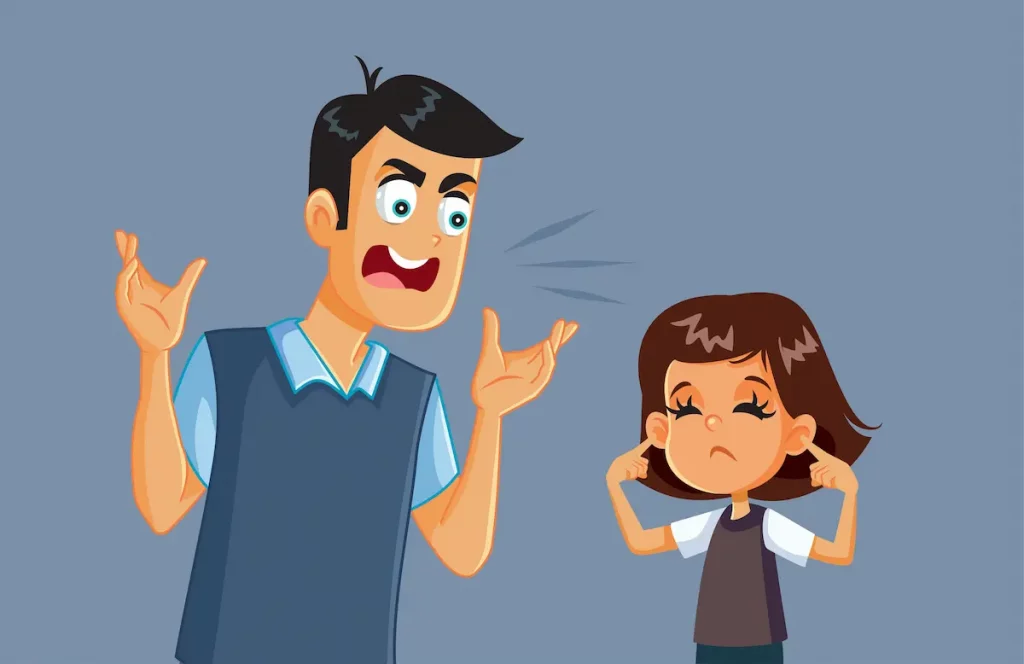Parenting styles influence how children view their own self-worth, how they relate to others, and whether they can engage in meaningful and appropriate relationships. Parenting styles also affect children’s personality development in terms of confidence, independence, and ability to regulate emotions.
You may be wondering whether the way you parent has any impact on your child’s development. While it may seem logical that the answer is yes, it is essential to understand why and how parenting styles actually affect children as they grow and develop.
Does being an involved parent affect your child over parenting styles that see children having to figure things out on their own? Is communication important in terms of parenting, and are parenting styles that value effective two-way communication healthier than those who feel children should be seen and not heard? Let’s unpack and find out.

Related Reading: How Positive Parenting Encourages Personal Development in Children
Child Development And Why Parenting Style Is Important
Childhood development is affected by many factors, including country of origin, nutrition, parental education, socioeconomic status, and genetic/biological components. But the importance of parenting styles cannot be understated. The way the child is ‘parented’ is significant, whether it is one or both of the biological/birth parents of the child raising them or one/more other primary caregiver(s).
How parents model and invest in their children’s lives in their formative years lays the groundwork for how their personality develops and what kind of behavior is exhibited. Communication and how emotions are treated also sets the tone for how children can relate to others and manage their relationships later in life.
The impact of parenting on the child’s self-worth is worth noting on its own. How parents respond to the needs of their child(ren) will formulate how they see themselves, which is one of the most significant factors of all. Children who feel they are not seen, not worth the time of others, or don’t matter will have lower self-esteem, which impacts the rest of their lives, too.
How Does Parenting Style Impact Child Development?
The ways that parents try to socialize their children and introduce them to the world are significant in later years. Parents are primary role models to their children in terms of socially-accepted and appropriate behaviors but, more than just that, how parents value relationships is foundational to childhood development.
The way parents try to control children or, conversely, allow them to take part in their upbringing is just as important; how children interact, see others, see authority figures, and express emotions are all formed in the parent-child relationship.
Children are affected by the ways their needs are met and, in return, channel that to decide how they will treat the world around them. Whether or not a child develops empathy is based on whether they experienced it, too. A child raised with understanding will also be able to understand others.
The same goes for children who experience their emotions as being trivial or not taken seriously by their parents; this generally translates, in adulthood, to individuals who struggle to express their feelings or be considerate of others.
Parenting styles are generally formulated categories for how parents choose to communicate, teach/model behaviors, and respond to their children’s needs. Some are overly involved, while others lean the other way entirely. Children are expected to act without questioning in some parenting styles, while others allow a mutual give-and-take and communication regime.
Let’s take a closer look at parenting styles and why they matter when raising children.

Realated Reading: What Is Nacho Parenting?
Different Parenting Styles And Effects On Child Development
Parents are the first contact children have with the rest of society and the world. As children grow, they learn from and emulate those around them and tend to take on the values, beliefs, and behaviors of those closest to them. Additionally, how children are raised is influential in how they perceive the world around them and how they react to it.
Experts generally define parenting styles in four broad categories, with differing communication, rule enforcement, and involvement levels. The four main parenting styles are Authoritarian, Authoritative, Permissive, and Uninvolved. Here we break down the parenting styles and their effects on personality and behavior:
1. Authoritarian Parenting
This type of parenting is characterized by less nurturing and lack of flexibility, high expectations, and strict rules. Rules are to be obeyed and there isn’t any room for negotiation. In this parenting style, communication is very much a one-way street, with the parent dictating to the child and and mistakes resulting in (sometimes severe) punishment.
Children are often not allowed to have input or be involved in communication. Because communication is limited to only giving instructions and directives, there is little explanation of rules and the reasoning behind them and few opportunities are given to the children to ask for clarity. Therefore, these children may struggle to understand expectations for achieving the high standards that their parents demand.
Effects of Authoritarian Parenting On Personality Development
Authoritarian parenting doesn’t come with open communication, nurturing, or closeness. Instead, it is almost like a boss is ordering an employee around, which generally results in the children feeling unseen and unimportant in many ways.
These children often have poor self-esteem and lack confidence in making their own decisions. Since their parents have made all their decisions for them and have not been involved in any aspect of their directionality, such children are often indecisive and struggle to take the initiative or solve problems independently.
Because of the lack of communication and understanding they have been raised with, children in such households may find it challenging to formulate, maintain, and be part of healthy friendships and relationships. They may also rebel and break from all of the excessive and strict structures set for them, as they age and see more of the world; resulting in extreme and potentially dangerous behavior.
Effects of Authoritarian Parenting on Behavior
Children coming from a household with Authoritarian parents tend to be exceptionally well-behaved. Since they fear the consequences if they don’t adhere to the rules, they will often act in a way that avoids that. They are accustomed to sticking to rules and following instructions and will do what they are told without hesitation.
However, this doesn’t mean well-adjusted; children often struggle with aggression, being shy, socially awkward, and unable to make decisions when they aren’t being dictated to. Underlying aggression from feeling forced into a specific mold by their parents often goes hand in hand with difficulty regulating their emotions and expressing them appropriately.
As these children grow older and they find freedom available to them once they are no longer under their parent’s rules, they are known to rebel and be oppositional to authority figures as a means of reacting to the strict rules and punishments they faced growing up.
Related Reading: Does Authoritarian Parenting Have Neagtive Effects on Adults
2. Authoritative Parenting
Almost in polar opposition to the Authoritarian parenting style, the Authoritative parent focuses on creating a nurturing relationship with their child characterized by effective two-way communication. Parents and children are often close, with discipline being corrective, guiding, and supportive rather than punitive.
This kind of relationship allows children to be involved in goals and expectations, with the child fully aware of the rules and how they are expected to achieve them. Mistakes are met with understanding and empathy and are generally easily avoided in the future due to being guided to making better choices.
Related Reading: Examples of Scaffold Parenting & How It Works
Effects of Authoritative Parenting On Personality Development
Because Authoritative parenting emphasizes clear communication and lots of time invested in a mutual relationship, children from such homes tend to have patience with others, value the importance of relationships, and communicate effectively.
Children who are allowed to be part of their own story and who have been involved in the setting of rules and boundaries tend to be more responsible. They can take initiative more easily/effectively and will often emulate the nurturing they receive from their parents. These children may have higher self-esteem and have more reasonable expectations of themselves.
While they may be more extroverted, even the more introverted children from households with this parenting style are more independent and able to make their own decisions.
Effects of Authoritative Parenting on Behavior
Children in Authoritative families tend to feel heard and seen; they are more confident and self-aware than others. Additionally, since mistakes are responded to with empathy and understanding, they are not shamed for their emotions and are thus taught to deal with them in a healthy and productive manner. This translates to higher levels of empathy and the ability to engage with others appropriately.
Doing well in school and hobbies is often a side-effect of Authoritative parenting as there is support, encouragement, and a healthy level of involvement from the parents. Such children can also stand up for themselves and take the initiative. They are more likely to resolve conflict through communication and other skills than lash out or resort to physical aggression.

Related Reading: German Parenting Vs. American Parenting [WHAT’S THE DIFFERENCE?]
3. Permissive Parenting
Also warm and nurturing, Permissive parenting comprises loving parental figures who may have a close relationship with their children and even positive communication, but very few expectations and rules. In this parenting style, children can do as they please without too much discipline or corrective behavior.
Essentially, they are free to figure it out themselves and are often able to choose their bedtimes, routines, meals, and how they want to spend their time. Even if these decisions are not in their best interests, the Permissive parent doesn’t intervene. Children make all the decisions, and the parents ensure the whims and needs of the child are met.
Effects of Permissive Parenting On Personality Development
A carefree personality is one of the results of Permissive parenting. As there are few rules and expectations of children raised by Permissive parents, they tend to be rather self-oriented, which some may define as selfish/self-involved. Since everything revolves around them as children and their demands are summarily met, this often results in being quite demanding later in life.
Furthermore, children with excessive amounts of freedom, little to no rules, and the ability to decide at inappropriate ages what they want, can be impulsive and unable to self-regulate.
Fortunately, such children have been exposed to high levels of communication and nurturing, so good self-esteem and the ability to socialize are standard. However, they tend to see their needs on a higher scale than those of others.
Effects of Permissive Parenting on Behavior
In this parenting relationship, the parent and child have a relationship more akin to “best friends” than one characterized by respect for authority or that of an adult vs. child. This often leads to adults who struggle to respect authority figures. Since they are used to being the center of attention and their parent(s) meeting their needs, they are usually expectant that others will continue to prioritize them.
As youngsters, children with Permissive parents may struggle with bad eating habits and poor routines that can lead to weight issues and health problems. Lack of rules around homework and bedtime also means school work likely isn’t given the attention it needs for success.
It has often been said that children from such households can “do no wrong” in the eyes of their parents. Since very little is done to offer guidance or correction of bad behavior, these children have been known to grow up and require “bailing out” from various situations by others. They are not overly responsible and may genuinely feel shocked at being told otherwise
4. Uninvolved Parenting
As the name suggests, uninvolved parenting sees the parents giving their children a lot of freedom, meeting only the most basic needs, but being primarily detached and neutral. There is generally no one specific disciplinary style and very little nurturing. There is usually very little communication, too, with the parents keeping to themselves and expecting the child to do the same.
Uninvolved parents have low expectations of their children and won’t intervene when there are academic difficulties or other challenges; instead, the child(ren) is/are expected to deal with life as it unfolds. These parents ensure their children have food, shelter, education, and even healthcare but are emotionally distant.
Effects of Uninvolved Parenting On Personality Development
In many situations, children of Uninvolved parents have developed maturity and a level of responsibility way above that of their peers, purely out of necessity. They tend to be either very responsible or entirely ‘lost’ in the great big world.
As the parents of these children are often aloof, these children may tend to be cold or introverted too. They may also struggle with their self-esteem, lack confidence, and be more of a ‘loner’ type than others. It’s also been suggested that personality traits that develop due to Uninvolved parenting include impulsivity and aggression.
Effects of Uninvolved Parenting on Behavior
Being self-sufficient is a coping strategy children of Uninvolved parents develop that isn’t necessarily healthy. Additionally, due to limited interaction and little communication, these may be socially withdrawn children who struggle with social cues – some may even seek out acceptance from the wrong crowd, turn to drugs or alcohol for comfort, or look for replacement role models in other settings.
As no guidance is provided for dealing with emotions or healthy relationships, such children may also have unhealthy coping mechanisms, struggle to express their feelings appropriately, and find it challenging to maintain relationships. Addiction is also an easy trap for such children to fall into.
A Healthy Parenting Style Leads To A Well-Adjusted Child
As we’ve seen above, how a primary caregiver chooses to parent their child is incredibly important. It is important to note that, each individual comes with their own history and baggage, which means that not everyone can realize/actualize being the type of parent they would like to be. Issues such as past trauma, their own parents’ parenting style, lack of education, or low socioeconomic status also play a part.
Still, the truth remains that Authoritative parenting styles often result in well-adjusted, emotionally healthy children who can self-regulate, express themselves appropriately, value relationships, and display empathy. Parenting styles such as Authoritarian and Uninvolved parenting creates vulnerable, insecure children who struggle with self-worth.
Permissive parenting is seen by many as an excellent way to give children a say in their lives while being present and loving to them. Still, the reality is that a lack of rules and boundaries when children need guidance for essential things like homework, nutrition, and healthy routines isn’t healthy at all.
Continue Reading: Is Modern Parenting Actually Better Than Traditional Parenting?
Conclusion
It is clear that a healthy and well-balanced parenting style is required to raise emotionally secure children; the various parenting styles each have different effects on children as they grow and develop. Where Authoritarian parents dictate and prescribe to their children, Authoritative parents involve their children in discussions. The first results in insecure and rebellious children, while the latter translates to empathic and confident youngsters.
Permissive parents also communicate but have little to no rules or boundaries, while Uninvolved parents do the bare minimum and not much more. Children from Permissive households can be demanding and selfish, while those who grew up with Uninvolved parents often seek acceptance in the wrong places.

